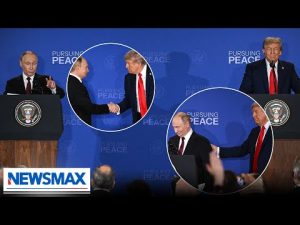In the world of political chess and international strategy, the Ukraine conflict remains a telling reminder of both the complexity and the burden of global diplomacy. As the meticulously choreographed dance between major powers continues, the Brussels beat of the European capitals quickens in step with the United States. This ongoing conflict in Ukraine, graced by three and a half years of struggle, countless lives lost, and millions more displaced, stands at a feeble juncture where answers are both urgently needed and frustratingly elusive.
Benjamin Hall, a senior correspondent for Fox News, carries the weight of first-hand war reporting experience, having endured a missile strike himself. He provides a piercing window into the current state of affairs in Ukraine. President Trump’s proponents are quick to propose that he may just be the forceful negotiator capable of pressuring Russian power through measures like hefty tariffs and strategic sanctions. Whether this diplomatic poise can convince President Putin to stop his territorial advances is a gamble that the international community watches closely.
The Ukrainians, a resilient people bruised and weary from conflict, seem ready and willing to embrace peace if it will bring an end to their suffering. However, there’s a gripping fear that peace talks led by figures like Trump and Putin could occur without Ukraine’s decisive involvement, turning it into a geopolitical bargaining chip instead of an autonomous nation. With a significant majority of Ukrainians yearning for negotiations, as evidenced by recent polls, the atmosphere is thick with both optimism for peace and anxiety over losing more than just land.
Meanwhile, Western Europe cautiously shifts from interest to action. Leaders in France, Germany, and especially the U.K. have started to show a willingness that wasn’t as strongly felt in years prior. There’s talk of European troops being deployed as peacekeepers, acknowledging that the power vacuum left by potential U.S. foreign policy shifts could very well call for their direct involvement. Nevertheless, the underlying question remains: can these nations protect Ukraine sufficiently from a future invasion without driving the region right back into instability?
A central theme in the conversation around Ukraine’s future is how to prevent future invasions by an emboldened Russia. There’s dialogue about transforming Ukraine into a porcupine state, one so heavily defended it deters any further advances. With Putin’s history of not exactly honoring geopolitical double pinky-promises, there’s a wary understanding—critics might call it realism—that whatever agreements arise must include solid, actionable defense measures to truly curb Russian ambitions.
At the core, ensuring the safety and stability of Ukraine isn’t just about reaching a ceasefire or drawing temporary lines on a map—it’s about creating ongoing security that prevents conflict from simply hitting the pause button until the next opportunity arises. The world waits to see if decisiveness can prevail among world leaders known for political showmanship, amidst a spectacle where the stakes are not merely about land but about people, sovereignty, and the integrity of global peace efforts.







